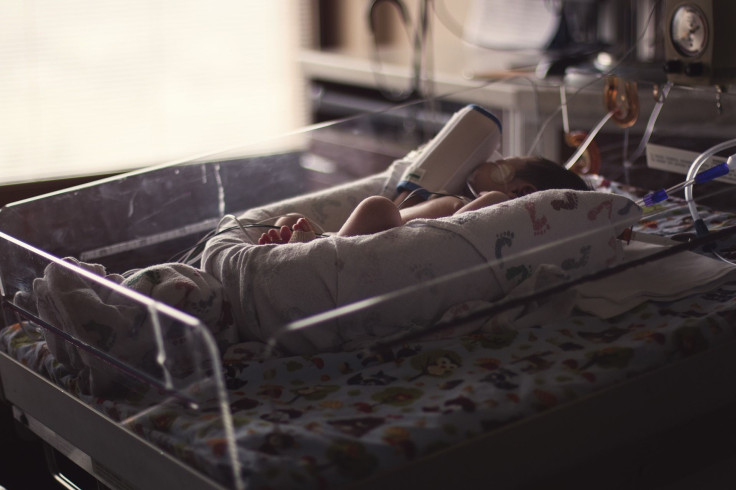Opioid Drug Crisis: Babies Born In Withdrawal Have Twisted Necks

Babies exposed to opioids in the womb, and then born in withdrawal, are susceptible to a problem that makes their necks twist, presenting a potentially serious health consequence to the rising opioid crisis in the U.S.
Scientists studying the health of these infants have found a possible link between their opioid withdrawal, also known as neonatal abstinence syndrome, and the twisting condition called torticollis.
Previous figures suggest torticollis, which tilts the babies’ heads and restricts their range of movement, affects less than 2 percent of the general infant population. But the researchers from Cincinnati Children’s Hospital Medical Center say they observed torticollis in more than 11 percent of the babies they were watching.
According to a study being published in the Journal of Pediatrics, 87 of the 783 infant subjects who were exposed to opioids during gestation were later diagnosed with the neck condition. Two-thirds of them also experienced flat spots on their heads called plagiocephaly, which commonly occurs in babies with torticollis and is related to spending too much time lying down in one position.
In many of the children, the torticollis was diagnosed long after they had been discharged from the hospital, suggesting these babies need continued monitoring.
“The healthcare costs associated with treating infants with NAS in the hospital has increased over the last several years,” according to the study. “Additional healthcare expenditures for infants with a history of NAS after discharge from the hospital … could continue to soar because these children are at risk for ongoing medical and developmental issues.”
Torticollis can be treated but could lead to more serious neck and craniofacial problems.
Almost three-quarters of the infants studied had been exposed to multiple different opioids in the womb.
There is not necessarily a direct connection between infant opioid withdrawal and torticollis. As the Cincinnati Children's Hospital Medical Center notes, the withdrawal could be connected to an issue like muscle tightness that then may lead to torticollis, for example.
But as cases of opioid drug abuse rise, with more people becoming addicted to substances like heroin, Percocet, Oxycontin and Vicodin, babies are often affected.
Statistics from the U.S. Centers for Disease Control and Prevention show that the number of babies born with NAS was three times greater in 2013 than it was in 1999 — it went from about 1.5 infants to about 6 infants out of every 1,000 live hospital births.
It’s possible the numbers have gone up in the five years since.
Neonatal abstinence syndrome often causes problems in a baby’s nervous system like tremors and seizures and gastrointestinal issues, according to the CDC.
“As a direct result of the opioid epidemic, the rate of newborns undergoing opioid withdrawal is on the rise,” according to Linda Richter, the director of policy research and analysis for the National Center on Addiction and Substance Abuse.
Richter told International Business Times that it’s important to focus on helping expectant mothers.
“For the health of babies and their mothers, we must treat pregnant women who have addiction with compassion,” Richter said. “Shame and fear of legal repercussions cause women to forego prenatal care and addiction treatment while pregnant. To help women and their babies, we need to abandon the idea that pregnant women struggling with addiction are criminals or bad mothers.”
© Copyright IBTimes 2024. All rights reserved.





















